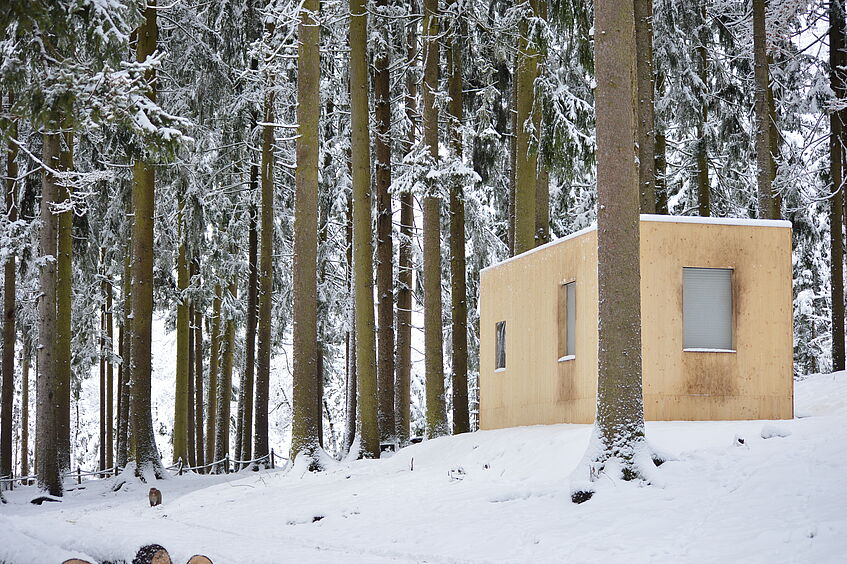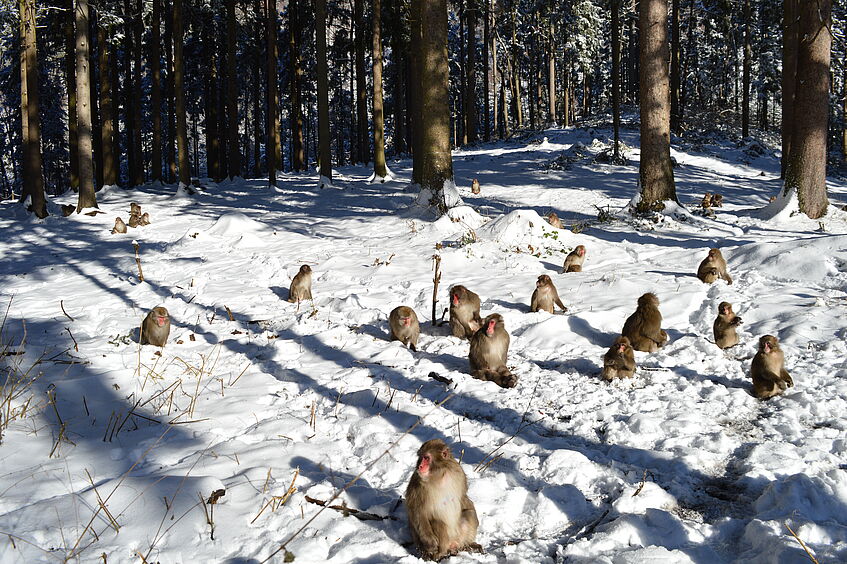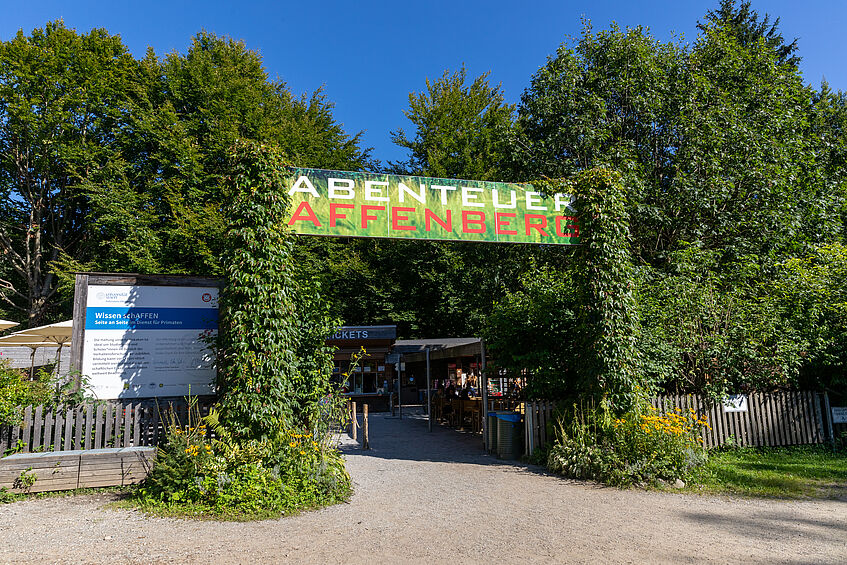Affenberg Research Station
Research at the Affenberg Research Station is characterized by a strong emphasis on fieldwork through the use of behavioural observations and cognitive experiments as well as on non-invasive molecular approaches in the on-site laboratories.
Our study group is a semi-free ranging group of Japanese macaques (Macaca fuscata) located at the “Affenberg Landskron” in Carinthia, Austria. The animals live in a four-hectare natural forest enclosure and are individually recognisable via facial and body features by the Affenberg team and the researchers on site. Our research provides important insights into the social dynamics of this population, such as individual social decision making, large-scale fission events, the formation of social bonds and the occurrence of cooperation and prosocial tendencies. Furthermore, we investigate the sexual behaviour of the species with a focus on homosexuality in females. In our laboratory, we conduct paternity analyses and investigate gene polymorphisms which are linked to behaviour using non-invasive sampling methods.

© Angela Stojan

© Angela Stojan
History of the Affenberg
In August 1996, a group of Japanese macaques was translocated from Minō, Japan to Landskron, Austria. A year later the site was officially opened as a touristic attraction called Affenberg Landskron (translated “Monkey Mountain Landskron”). From the start, the park management used the advice from primatologists to ensure optimal management conditions of the newly arrived group. Over the years, the facility has established scientific collaborations with different national and international research partners. In 2019, the Affenberg became a field research station of the University of Vienna, Vienna, Austria as part of the Department of Behavioral & Cognitive Biology.

© Jasna Karzić
